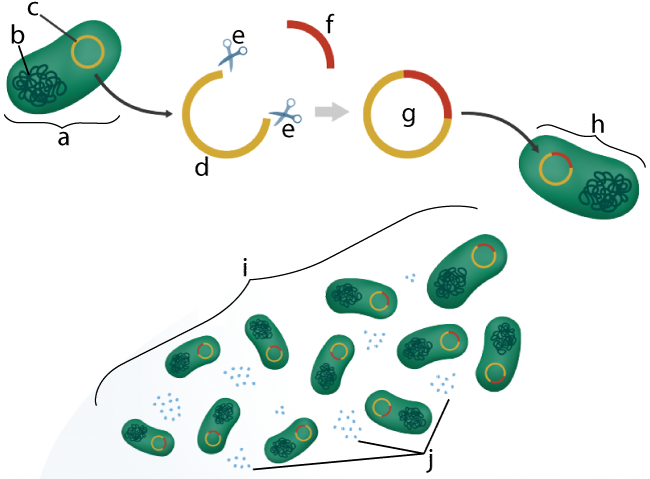
It is important to fully understand the requirements of a career as a chemical engineer before you make the decision to pursue this path. It is also important to understand what the job outlook and education requirements are. After all, a chemical engineer will need to have the right mix of skills and experience to be effective.
The skills required for a career as a chemical engineering engineer
An analytical skill and a solid background in science are essential for a career in chemical engineering. Chemical engineers analyze and work with all types of data using mathematical formulas and science rules. This knowledge not only helps them in solving problems, but it also helps them in decision making, as they have to weigh the relative costs and benefits of various options.
For a chemical engineer, problem solving, analytical thinking, as well as the ability to think critically are essential skills. They must also be able collaborate well with others and can communicate well in a variety contexts. A chemical engineer must be able to use computers and have strong math skills.

A chemical engineer can use their skills and knowledge to help improve processes or create new products. They use analytical skills to research different materials and processes and create prototypes. These prototypes are then tested for safety and efficiency. They must be able evaluate and analyze equipment and processes.
Education is required
If you have an interest in chemical engineering and want to know how to become one, you should consider taking college courses in the field. In general, chemical engineers focus on science and math. Students who plan to become chemical engineers usually take courses in these subjects in both high school and college. These courses are the core of a career.
Chemical engineers bring their science and math expertise to the manufacturing process. They are responsible for manufacturing products such as plastics, food and pharmaceuticals. Chemical engineering is one of the most desirable degrees available today, and if you're interested in helping solve some of the world's most pressing problems, this degree will be perfect for you. Additionally, chemical engineers are paid a higher salary that other types of engineers.
Chemical engineers can enter the field without a license, but they can earn more if they're licensed as a professional engineer. There are different licensing requirements from state to state. However, most require four years experience and a written examination. A professional engineer license gives them the ability to supervise other engineers or manage public projects.

Job outlook
A chemical engineer is someone who is knowledgeable in chemical engineering. These professionals work within the chemical industry to convert raw material into finished products. They also design and run chemical plants. Their job requires them work in teams to solve multiple problems. These professionals are in high demand in many areas.
According to Bureau of Labor Statistics, the Bureau of Labor Statistics projects that chemical engineers will see a 4% increase in employment over the next decade. This is consistent with the average increase in engineering jobs. However, growth will be higher for certain types of chemical engineer than others. This is due both to new technologies and changes in society. Chemical engineers with a specialization in pharmaceutical manufacturing will see their jobs grow faster.
Chemical engineers have to be careful when working with chemicals. Chemical engineers need to consider the safety and well-being of their customers. Many chemicals have harmful effects and should be handled with care. Chemical engineers can make a good living, however.
FAQ
What Is the Hardest Engineering Major?
The hardest engineering major is computer science because you have to learn everything from scratch. You will also need to learn how to think imaginatively.
Programming languages will include C++, JavaScript, PHP and JavaScript.
Also, you will need to understand the workings of computers. Understanding hardware, software architecture, running systems, networking, databases and algorithms is essential.
Computer Science is an excellent option for engineers who want to study.
Is engineering a good career choice?
Engineering is a rewarding career that allows you to learn and improve your skills. You can make a positive difference in people's life. There are many ways to do it.
You could design products such as cars, planes, trains, computers, mobile phones, etc. You might also develop software or assist in building these devices. You might also be interested in creating medical equipment and machinery. There are endless possibilities!
Engineers enjoy working alongside others to solve problems and find solutions. They are always on the lookout for new challenges and learning opportunities.
So yes, engineering is a great career choice, but it does involve hard work and dedication. Engineering is not about sitting down and watching TV all day. You'll need to put in a lot of effort to get the desired results. It's worth it.
What does an electrical engineer do?
They create power systems that can be used by humans.
They are responsible to design, build, test, install, maintain, and repair all types of electrical equipment used by industry, government and residential customers.
They plan and supervise the installation of these systems.
Electrical engineers design, install, and maintain electronic circuits, devices, and components that convert electricity in to usable forms.
Which engineering is the hardest?
The most difficult engineering challenge is to design a system that is robust enough to handle all possible failure modes while at the same time being flexible enough to allow for future changes.
This is why there are so many iterations and testing. It is also important to understand how the system should respond when something goes wrong. This is where you have to make sure that you are not just solving one problem but rather designing a solution that solves many problems simultaneously.
Statistics
- 14% of Industrial engineers design systems that combine workers, machines, and more to create a product or service to eliminate wastefulness in production processes, according to BLS efficiently. (snhu.edu)
- 8% Civil engineers solve infrastructure problems. (snhu.edu)
External Links
How To
How to write letters in engineering drawing
The engineering drawings are made up of both architectural drawings (also known by technical drawings) as well as engineering sketches. The first shows the product’s physical features. While the second shows how the product should appear. Each type contains detailed specifications, dimensions, symbols and text. Engineers will use their own language to write these documents. These terms refer to specific units, abbreviations and acronyms. These terms are called engineering lingo. This article explains what they mean.
A letter refers to a formal document sent by an individual/organization to another person/organization. It often includes a greeting or salutation, signature, date and closing remarks. A self-introduction is a common addition to most letters. Some letters might contain business details such as legal agreements. Some letters may contain only greetings or signatures.
Engineers draw and design diagrams using their professional knowledge. To communicate this work effectively, engineers must use precise language. Technical terms describe the product, process, materials, and methods.
Engineers can use many terms to describe things. An example is "ampere", which refers to electrical current. For mass measurements, they may use the expression "kilogram per meter sq.d." These terms are called scientific numbers. Common names are used by engineers to refer to these terms. Common names are easier to remember and understand.
Abbreviations are used frequently for technical terms. A abbreviation is a shorter word. The abbreviation "kW" is for kilowatt. If you see "KW", you will know that it is kilowatt. It doesn't matter how long it takes to remember the name.
Engineers may also use many acronyms and abbreviations other than technical terms. These are similar abbreviations to acronyms but can also be composed of multiple words. Examples include "IEC," DIN," and ANSI. These are crucial because they make communication easier and faster.
When engineers use their jargon, they do not always follow standard spelling rules. Sometimes they spell out numbers using digits rather than numerals. They might use different capitalizations that normal. Capitalization refers to whether a word starts with a capital letter or lowercase. Words that start with vowels are spelled differently than words that start with consonants.